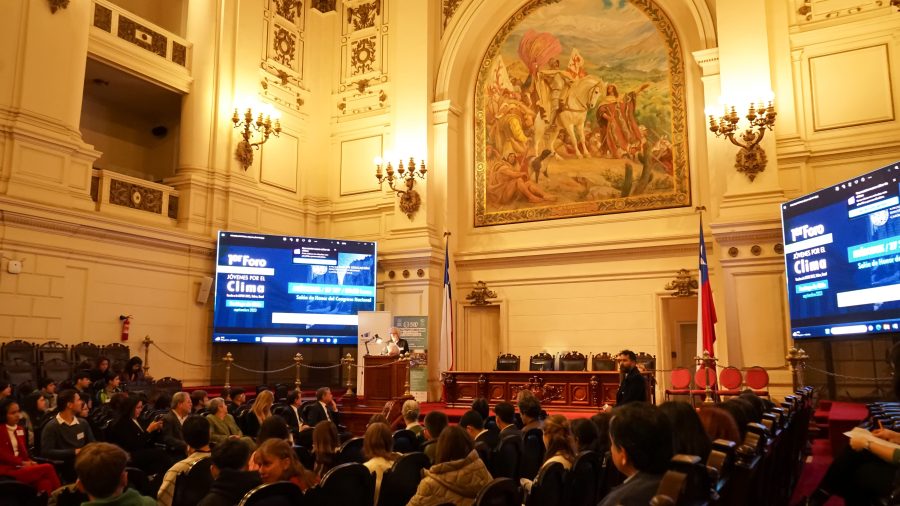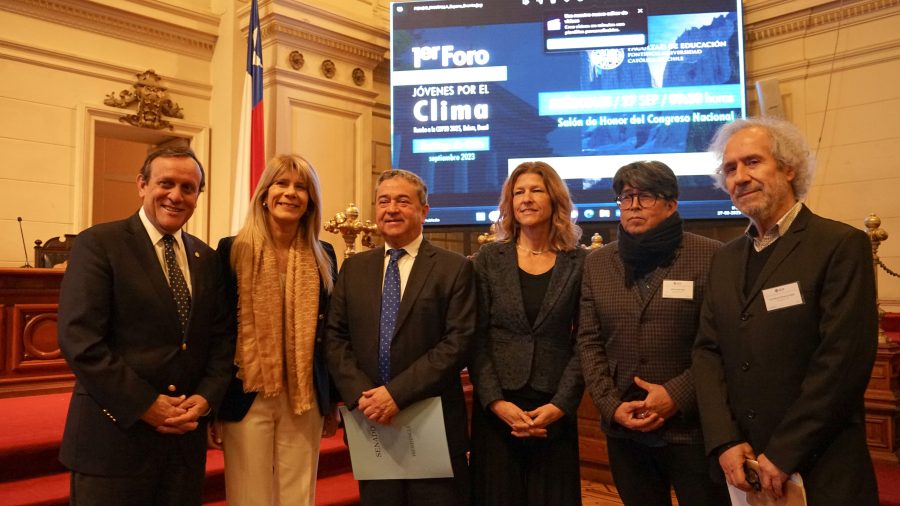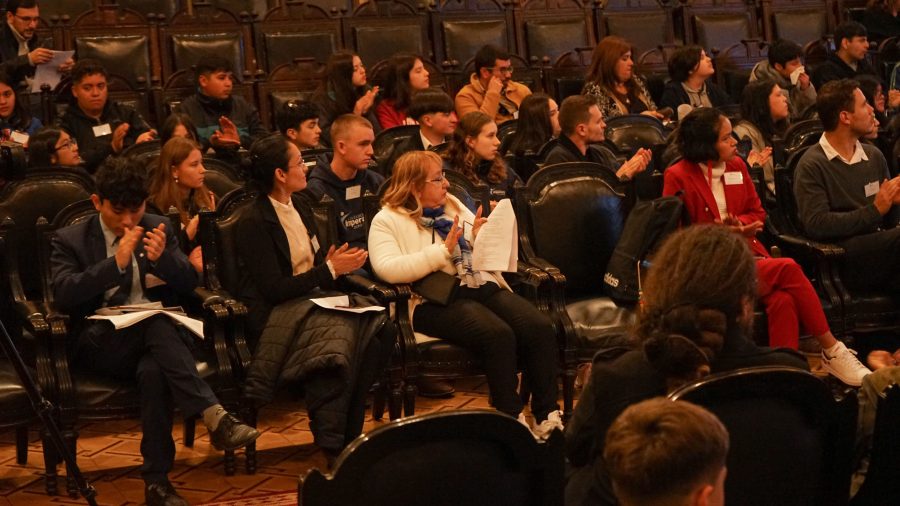Faculty and CEPPE organize First Latin American Youth Forum for Climate
October 19, 2023
The meeting is part of the international project Global Youth Climate Pact, initiated in the run-up to COP 21, and seeks to give prominence to the concerns and proposals that young people have about climate change.

Students of different ages and areas of the country attended the Hall of Honor of the Former National Congress of Chile on September 27 to be part of the “First Latin American Forum of Youth for Climate.” The event, organized by the UC Faculty of Education and the Center for Policy Studies and Practices in Education (CEPPE), together with different groups, also brought together authorities and academics to discuss the topic.
The meeting is part of the international project Global Youth Climate Pact, initiated in the run-up to COP 21 held in 2015, and which sought to place young people from different parts of the world at the center of the debate, giving voice to their concerns and proposals. Since then, the Catholic University has supported the initiative through the faculties of Education, Biological Sciences, and from different UC research centers.
“Since 2014, this Global action research project, which gives high school students between 15 and 20 years old a voice on climate change, has already reached more than 18.000 students in 30 countries, spanning 141 educational institutions,” explained during the opening of the event the academic and senior professor Luis Flores, one of the project leaders along with the researcher Alfredo Pena Vega.

Juan Antonio Coloma, president of the Chilean Senate, addressed the students, highlighting that Chile “has potential that we never, in previous generations, assumed. But today yes. It is good to have a sense of responsibility today, to assume that if we do things well and come to an agreement, we will be developing Chile and helping the world to stop a process that otherwise becomes highly complex for future generations. ”.
Along the same lines, the rector of the Catholic University, Ignacio Sánchez, highlighted that universities have a responsibility towards the effects of climate change, which lies not only in the search for research and solutions, but also through the generation of new knowledge and the connection with the environment.
“We have the responsibility to propose paths for a sustainable human development, and we can do it through education. Concern for our common home must begin at an early age, and this forum is a clear example that it is necessary to strengthen this initiative to work with young people,” highlighted Rector Sánchez.

The young people present during the Forum are part of an initiative that brings together 3.800 students from the country, from seven regions, from Putre to Puerto Williams, including Rapanui, the senator highlighted at the meeting. ximena rincon, President of the Commission on Future Challenges, Science, Technology and Innovation of the Senate.
Rincón thanked those who participated in the activity, since they are “the voice of change in a world that urgently needs action and leadership from young people like those who gather today. This demonstrates the reach and interest of young people in the climate, which is not limited to one region, but covers the entire national territory.”
The director of the Center for Studies of Policies and Practices in Education, CEPPE UC, Magdalena Claro, explained that the center has supported this international project since its inception because “we recognize its great contribution to the training of new generations, in responsible citizenship, with ecological mentality And social. Likewise, he summons us his gaze of climate change not only as a technical problem, but as a human, social and political one, as well as its pedagogical approach, which seeks to transform knowledge into community action.”
